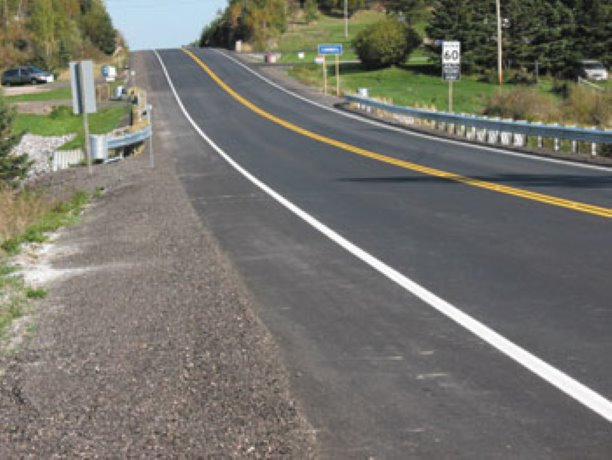The Ministry of Transportation Ontario (MTO) says its seven-year pavement warranty program – the only program of its kind in North America – will provide an ongoing model for future paving contracts.
The Ministry of Transportation Ontario (MTO) says its seven-year pavement warranty program — the only program of its kind in North America — will provide an ongoing model for future paving contracts.
The warranty program has undergone a five-year trial phase and combines design-build contracting and multi-year warranties on hot mix paving.
Under the program, the MTO doesn’t vet the design of the pavement, but allows contractors to bid on the pavement portion, taking responsibility for pavement design, materials and construction.
The first two projects under the program were awarded in 2006: Highway 94 near North Bay and Highway 23 near Harriston.
Others followed.
The province tested various warranty lengths in order to balance the needs of the province with the abilities and interests of contractors, said Gary Todd, manager, design and contract standards office, MTO.
“In the mid-1990s, we tested three and five-year warranties under a few trials, and essentially the products we got were acceptable,” he said. “But, the time period wasn’t really long enough for the pavement to show any defects. After three years, any pavement will probably look good. If we went a lot longer, we realized we would be discouraging bidders because that extended period represents a time beyond which the paver could accurately predict the road’s condition.”
Extended warranties had not been applied to contracts for a number of years until the idea was revived in 2004, as part of MTO’s continuous improvement program.
“Seven years seemed to be a good balance between MTO’s interests and the contractors’ interests without discouraging bids,” said Todd.
“We have various deterioration curves for various surfaces, but if the contractor can get the road to last seven years to warranty specifications, it’s likely the road will make it all the way to 18 or 20 years.”
He said the current model holds the paving contractor responsible for the design and thickness of the pavement structure, the grade of the pavement and any quality control testing.
“If we need to replace a culvert, for example, we simply set a target for smoothness over the culvert instead of specifying everything about that culvert,” he said.
“MTO would continue to specify that the road needs to be capable of carrying a specific load, meet performance criteria for smoothness and skid resistance and use specific aggregate sources for premium mixes.”
Contractors simply bid on how much it will cost to build a stretch of road within those parameters with an effective life of 18 to 20 years. The contract is then awarded to the lowest bid, he said.
“Essentially, we’ve learned some lessons going along through this process with respect to being clear in the specifications,” said Todd.
Through the life of the road projects, 500-metre segments of the pavement are tested for smoothness, pavement friction and signs of distress, including wheel track rutting, coarse aggregate loss, rippling, shoving, flushing and pavement cracking.
To date, all but one of the projects has produced pavement designs as good as or stronger than MTO specifications and only one project to date has experienced any performance issues.
Todd said that contractors have responded well to seven-year warranty bids, with at least three bidders per project.
He noted, however, that the ministry expects bids to become more competitive, as contractors gain more experience with the system and learn to place a more exact value on the extended risks associated with the project warranties.
The MTO has also hosted presentations on pavement distress evaluation to help contractors understand the way that pavements will be evaluated under the seven-year warranties.
“We have pavement management histories on most sections of our highways, so we’ve invited contractors to ask for performance information on any of the contracts they’ve worked on,” Todd said.











Recent Comments
comments for this post are closed